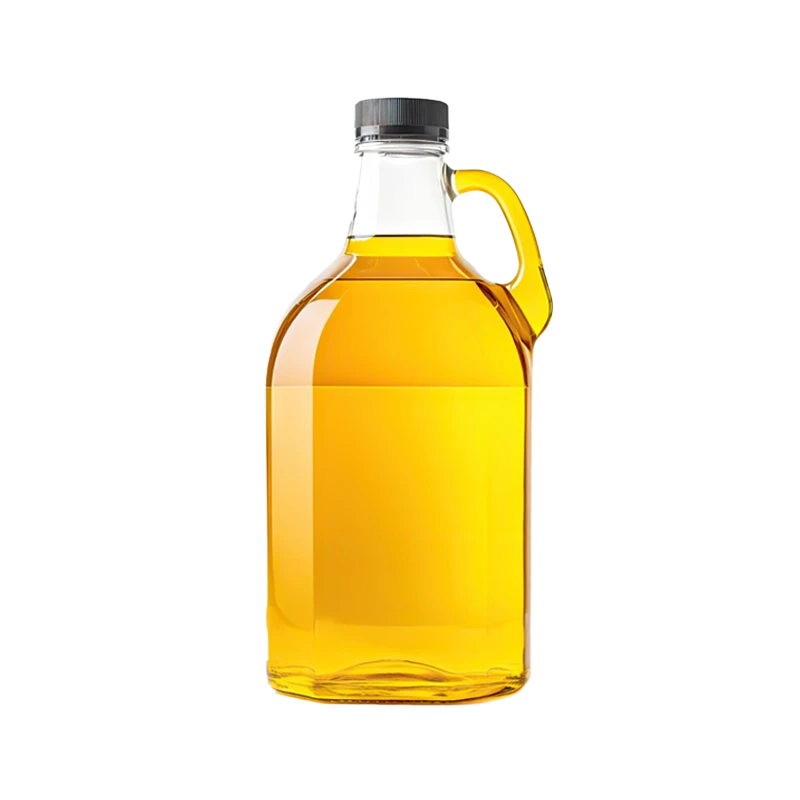Sunflower Oil — Nutrients, Health Benefits, And Shopping Tips

Written by Listonic Team
Last update on September 4, 2024
Sunflower oil nutrients
Nutrition facts
Amount per 100 g
Calories
🔥 884 kcal
| Nutrition per: 100 g | Value | % Daily Value* |
|---|---|---|
| Carbs | 0 g | - |
| Fiber | 0 g | - |
| Sugars | 0 g | - |
| Glycemic Index | 0 | - |
| Protein | 0 g | - |
| Sodium | 0 mg | - |
| Total Fat | 100 g | 128.21% |
*The % of Daily Value (DV) tells you how much a nutrient in a serving of food contributes to a daily diet. 2,000 calories a day is used for general nutrition advice.
Sunflower oil facts & tips
Health benefits
- Rich in healthy fats such as monounsaturated and polyunsaturated fats, which support heart health by reducing bad cholesterol levels.
- High in Vitamin E, an antioxidant that helps protect the body from free radicals and supports skin health.
- Versatile cooking oil with a high smoke point, making it suitable for frying, baking, and sautéing.
- May support immune function due to its anti-inflammatory properties.
Health risks
- High calorie content which can contribute to weight gain if consumed in large quantities or frequently used in cooking.
- High fat content though mostly healthy fats, excessive consumption can still contribute to increased caloric intake and weight gain.
- Risk of oxidation as sunflower oil is prone to becoming rancid when exposed to heat, light, or air, producing harmful compounds that may contribute to long-term health risks.
- Potential for allergic reactions in individuals allergic to sunflower seeds, causing symptoms like itching, swelling, difficulty breathing, or anaphylaxis.
How to choose sunflower oil
High-quality sunflower oil should be clear and have a pale golden color, indicating proper refinement. It should have a mild, almost neutral flavor, making it versatile for cooking. The oil should not smell rancid or taste bitter.
Avoid sunflower oil that is cloudy or has a strong, unpleasant odor; these are signs of oxidation or poor storage. Oils that leave a greasy residue or have sediment should also be avoided, as they could impact the flavor and healthfulness of your food.

How to store sunflower oil
Sunflower oil should be stored in a cool, dark place, ideally in a tightly sealed bottle. Keeping it away from light and heat preserves its flavor and extends its shelf life for up to six months.
Exposure to air and light can cause sunflower oil to go rancid quickly. Avoid storing it near the stove or in direct sunlight. Always ensure the bottle is tightly closed to maintain its quality and prevent oxidation.
✅ Extra Tip
How long does it last?
Sunflower oil can last for 1-2 years when stored in a cool, dark place. Once opened, it is best to consume it within 6 months for optimal quality. Proper storage helps maintain its flavor and nutritional value.
What to do with leftovers?
Leftover sunflower oil can be used in a variety of culinary and non-culinary ways. In the kitchen, sunflower oil is a versatile cooking oil that can be used for frying, sautéing, baking, and making dressings. Its light flavor makes it suitable for a wide range of dishes, from savory to sweet.
Beyond cooking, sunflower oil has several practical uses. It’s often used in DIY beauty treatments as a natural moisturizer for the skin and hair, helping to hydrate and soften. Sunflower oil can also be used in massage therapy for its light texture and nourishing properties. Additionally, it can be applied to wooden utensils and cutting boards to help maintain their condition and prevent drying out. Sunflower oil is also commonly used as a base oil in aromatherapy, where it’s mixed with essential oils to create custom blends for massage or skincare.
👨⚕️️ Medical disclaimer
Discover products from other categories
Listonic Team
Fact-checked
Our editorial team checked this article to make sure it was accurate at the time of publishing it.
Get the top-rated shopping list app

sunflower oil
1 piece
Outline







